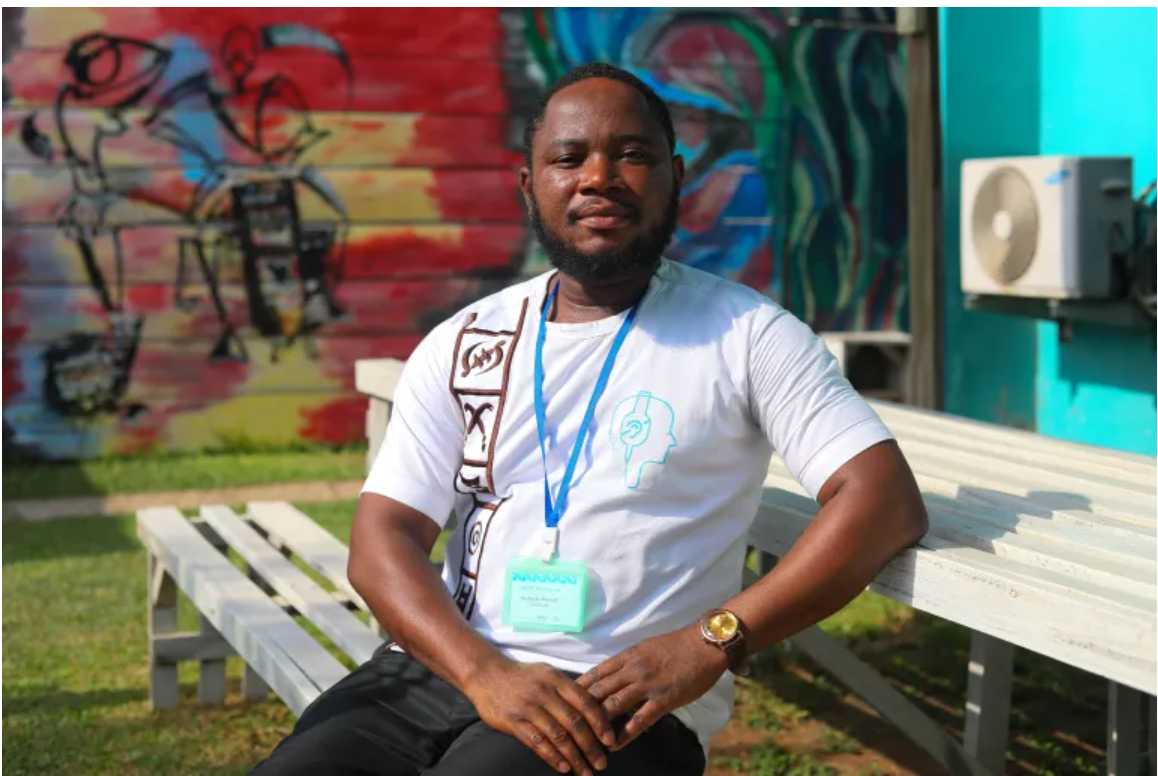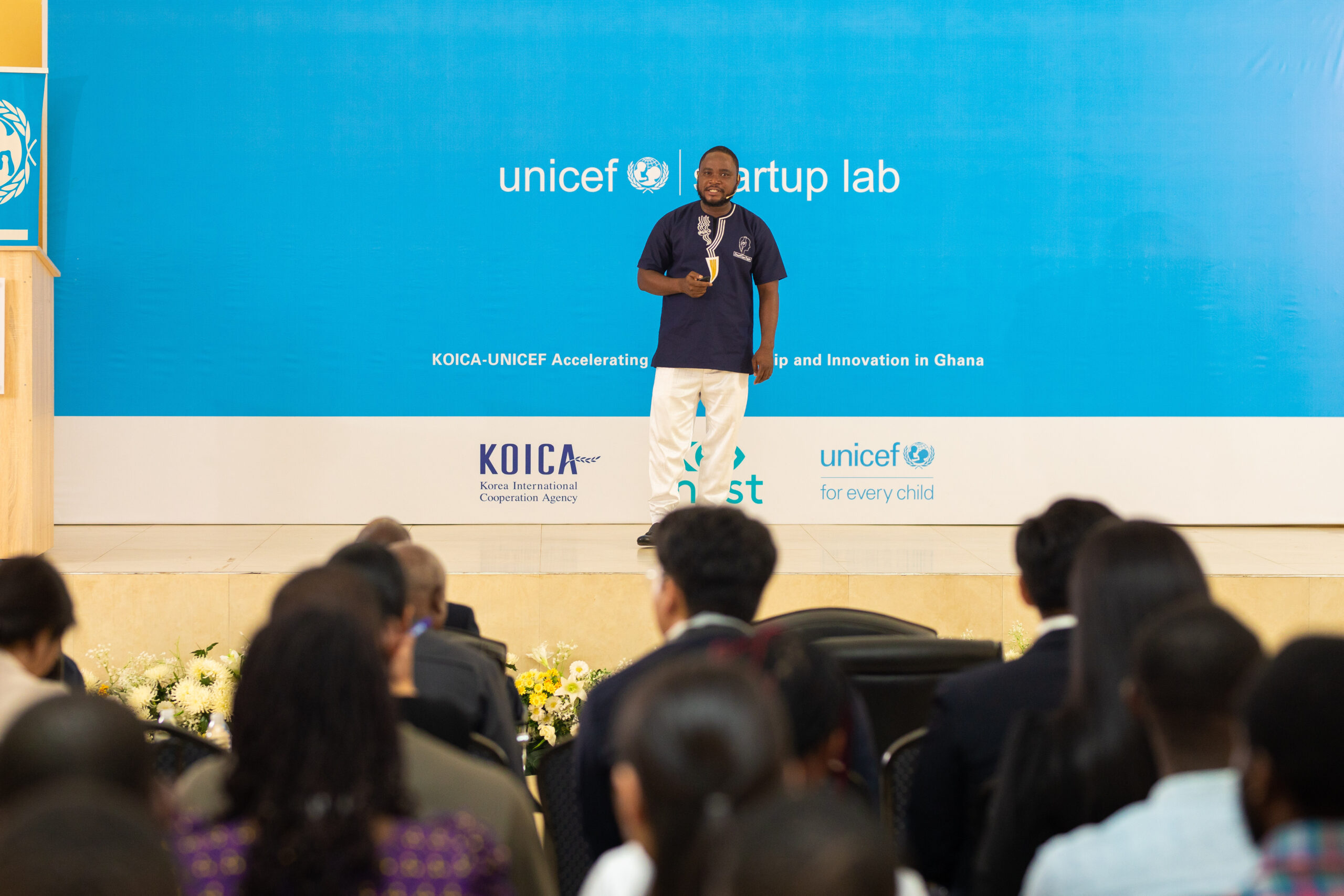Enabling Hearing Impaired to Access Information

In January 2020, Ike Agyei Mensah, a sign language translator, went to visit his friend, John Afriyie, in Kumasi, Ashanti Region. John had been born with a hearing impairment, and even though news was emerging from national and international media on the dangers of COVID-19, Ike realized that John had absolutely no information about the COVID-19 pandemic. Ike says that “During our conversation, John asked me what was wrong with people’s noses and why are people covering their noses. From that conversation, I noticed that information on the pandemic had not reached him. So, if I had not visited my friend John, he might have discovered the health crisis too late. I felt so sad about it’.As he returned home on that day, Ike – who is also an app developer – started looking for ideas on how to reduce the communication gap for deaf people and facilitate their access to information. He started a targeted outreach information in his city, Kumasi, where volunteers with sign language knowledge were ’speaking’ to deaf people sharing critical information about COVID-19. Ike quickly realized he was not able to mobilize enough qualified human resources, so he decided to leverage on his academic training to develop a scalable technology solution and came up with DeafCanTalk app.
The DeafCanTalk app – which was developed by both Ike Agyei Mensah and his co-founder Victor Wealth-Adankai – is an algorithm-based AI application that converts spoken speech into text and vice versa. It is the first of its kind in Ghana, launched in June 2023 during the UNICEF StartupLab demonstration day, the software currently has 87 active users, and this number is gradually increasing.
Ike Agyei Mensah affirms that the UNICEF Startup Lab programme was critical to the strengthening and development of this concept. “Being part of the incubator has allowed us to work with world-class specialists in the field of software who have helped us build up the app to a point where consumers could use it,” Ike told UNICEF.
The UNICEF StartUpLab is an accelerator programme dedicated to support businesses working towards advancing the United Nations Sustainable Development Goals (SDGs) for children and young people. Ike and his team benefited from access to UNICEF StartupLab experts who gave advice on critical design thinking for the application. Derek Degbedzui and Daisy Ocansey, experts from the UNICEF StartupLab programme successfully provided guidance and strategy for DeafCanTalk to be ready for the market. The seed fund received from the UNICEF StartUpLab helped the DeafCanTalk to proceed with further app development and implement the market research and validation process that Ike Agyei Mensah learned as part of the UNICEF Startup Lab’s training.

DeafCanTalk continues to achieve further success after graduating from the Lab. Ike says that “The UNICEF StartupLab made me investor ready for the annual Presidential Pitch Awards, which took place barely two months after graduating from the UNICEF StartupLab programme. I built on my Pitch Deck from the USL Demo Day to become a Top 5 winner of the Presidential Pitch which helped me secure 100,000 Cedis in funding to further develop my business.”
Today, the DeafCanTalk Software has a feature that helps organizations to be more inclusive in their communication with the public by offering the alternative services of professional Ghana Sign Language Translators. Ike and team hope that this app will help make communication between deaf people and people who are sign language illiterate more accessible and assist the auditory impaired in accessing otherwise impossible information. Truly realizing UNICEF goal’s to ‘Leave No One Behind’.
